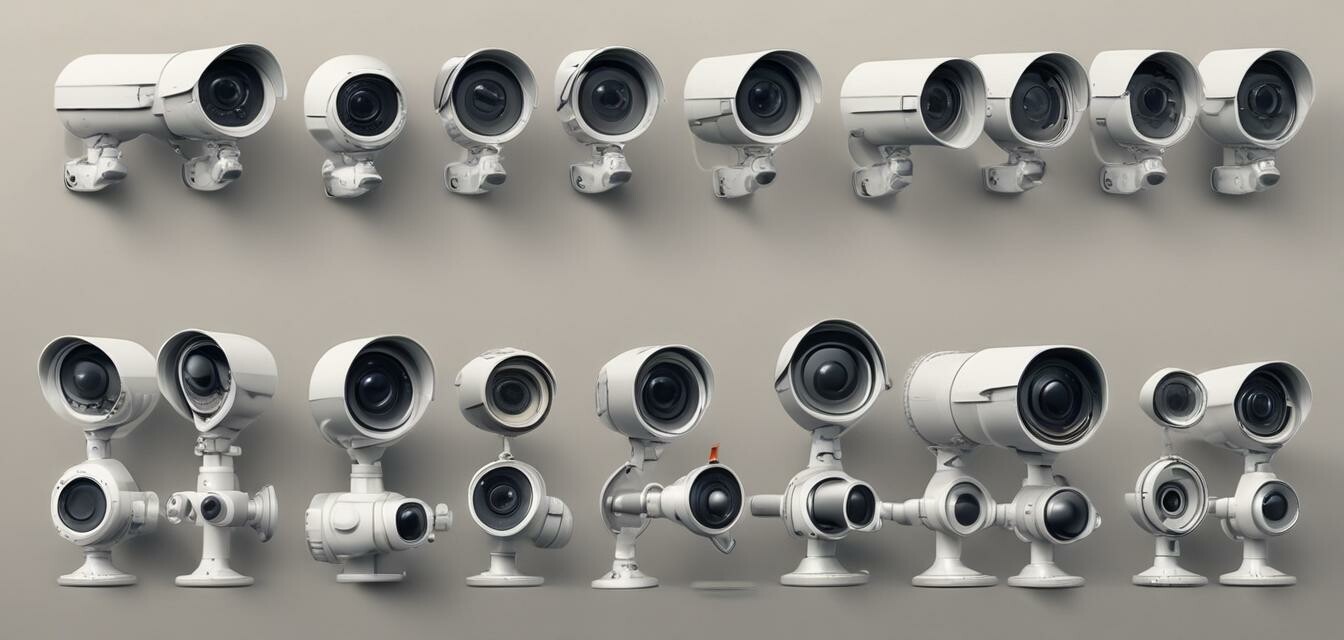
Trends in Security Camera Design for 2025
As we continue to progress in the realm of home security, the design of security cameras is evolving to meet the sophisticated needs of consumers. 2025 is shaping up to be a transformative year for security camera aesthetics and functionality. In this article, we will explore the latest trends in security camera design, discuss their key features and assess how these innovations will enhance your home security.
Key Takeaways
- Security camera designs are becoming sleeker, more discreet, and tech-savvy.
- Integration of AI and smartphone connectivity is critical in modern designs.
- Weather-resistant and stylish materials are increasingly popular among consumers.
- Smart home integration is defining new design standards.
- Consumers are attracted to multi-functional devices that offer more than just surveillance.
1. The Shift to Sleeker Designs
Modern consumers prefer security cameras that blend seamlessly with their home decor. Security camera manufacturers are responding by creating designs that are less obtrusive and more visually appealing. Here are some notable aspects:
- Minimalistic patterns and colors that complement home interiors.
- Utilization of compact forms, making it easier to install without drawing attention.
- Incorporating innovative materials, such as brushed metals or textured plastics.
Examples of Sleek Camera Designs
| Type | Design Features |
|---|---|
| Bullet Cameras | Sleek, elongated designs with cylindrical shapes. |
| Dome Cameras | Rounded shapes that are both discreet and aesthetic. |
| Indoor Cameras | Stylish, contemporary looks that can match home decor. |
2. Integration of Smart Technology
The move towards smart home systems requires security cameras to adapt. Here are some key integrations to consider:
- Connecting to smartphones for real-time alerts and live streaming capabilities.
- AI facial recognition to allow users to identify family members or known visitors.
- Voice control compatibility with popular smart assistants.
To dive deeper into smart home systems, check out our Home Automation & Accessories page.
Examples of Smart Features in Cameras
| Feature | Benefit |
|---|---|
| AI Detection | Reduces false alarms by recognizing familiar faces. |
| Remote Access | Allows monitoring from anywhere via an app. |
| Two-Way Audio | Enables communication through the camera. |
3. Enhanced Weather-Resistant Designs
As outdoor security cameras face environmental challenges, durability is essential. The following features are expected to rise in importance:
- Increased waterproof ratings for cameras designed for outdoors.
- Weatherproof materials that can withstand extreme temperatures.
- UV resistance to protect against fading and degradation.
Comparative Weather-Resistance Ratings
| Camera Type | Weather Resistance Rating | Ideal Use |
|---|---|---|
| Standard Outdoor Cameras | IP65 | Suitable for rainy conditions. |
| Extreme Outdoor Cameras | IP67 | Suitable for harsh weather. |
| Indoor Cameras | N/A | Best for sheltered environments. |
4. Focus on Multi-functional Devices
Consumers are increasingly looking for security solutions that provide more than just basic surveillance. Innovative designs aim to combine multiple functionalities:
- Integration of motion sensors to alert homeowners of movement.
- Smart lighting features to enhance nighttime visibility.
- Video doorbells that double as surveillance cameras.
For further insights into related technology, be sure to visit our Home Safety Tips blog section.
Benefits of Multi-functional Cameras
| Functionality | Benefit |
|---|---|
| Surveillance | Real-time monitoring of the premises. |
| Alerts | Instant notifications for unusual activities. |
| Smart Features | Enhanced usability and integration with other devices. |
Conclusion
The evolving landscape of security camera design in 2025 is driven by a necessity for functionality alongside aesthetics. Consumers are looking for devices that not only serve a purpose but also fit into the modern design of their homes. As technology continues to enhance these systems, we can expect even more impressive innovations in the security landscape.
Pros
- Sleek and modern designs fit home aesthetics.
- Enhanced functionality through smart integrations.
- Improved durability for various weather conditions.
- Offer multiple features in a single device.
Cons
- Potentially higher costs than basic models.
- Complex features may require more technical know-how.
- Privacy concerns with increased reliance on cloud storage.
Tips for Selecting the Right Security Camera
- Evaluate your specific security needs.
- Look for compatibility with existing smart home devices.
- Consider the camera’s location and weather conditions.
- Explore various features to find the best fit for your home.
